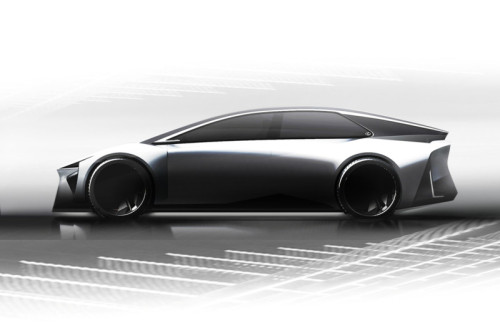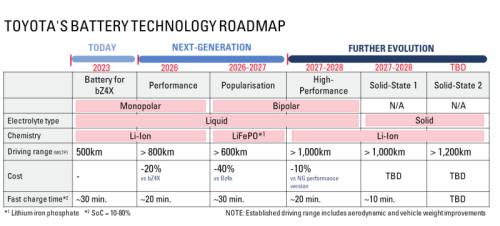
Toyota’s advanced battery technology key to driving range improvements
At the recent launch of its BEV Factory Toyota Motor Corporation (Toyota) revealed that its next-generation BEVs (battery electric vehicles) will start production in 2026. Toyota plans to offer advanced specification BEVs that are loved as driving machines. Not only will they be designed and built differently, they will also be powered by a range of new advanced batteries developed specifically to exceed Toyota customers’ diverse needs and expectations. During a recent technical workshop under the theme of “Let’s Change the Future of Cars”, Toyota communicated a first insight into its next-generation BEV breakthrough technologies, including a preview of its advanced battery technology rollout plan.
Takero Kato, president of Toyota’s BEV Factory, indicated that the next-generation BEVs will first hit the market in 2026 and that 1.7m of the 3.5m BEVs Toyota expects to sell by 2030 will be these next-generation models. He also highlighted that a range of battery technologies will be key to appealing BEVs to a wider range of customers and their needs.

Improved performance from liquid electrolyte batteries
Batteries with liquid electrolytes, which are currently the mainstream technology for BEVs, are being further developed by Toyota to deliver improved energy density, cost competitiveness and charging speeds.
There are three main technologies under development for liquid electrolyte batteries – ‘Performance’, ‘Popularised’ and ‘High Performance’
1. Performance [Lithium-Ion]
Intended to be introduced with the next-generation BEVs to be introduced in 2026, the Performance Li-Ion battery will increase the cruising range of BEVs to over 800km when combined with improved aerodynamics and reduced vehicle weight.
- 20% reduction in cost (compared to current bZ4X BEV)
- Rapid recharging time of 20 minutes or less (SOC*1 = 10-80%)
- Timing: expected 2026
*1 SOC – State of Charge
2. Popularisation [Lithium Iron Phosphate]
Toyota is developing high-quality, lower-cost batteries to support the wider appeal of BEVs by providing customers with a variety of battery options – similar to the choice they have today with different powertrains.
The Popularisation battery is constructed using the bipolar technology that Toyota pioneered and confirmed with its NiMh hybrid electric vehicle batteries, combined with inexpensive lithium iron phosphate (LiFePO) as the core material.
The Popularisation battery is expected to offer:
- 20% increase in cruising range (compared to current bZ4X)
- 40% reduction in cost (compared to current bZ4X)
- Fast recharging time of 30 minutes or less (SOC*1= 10-80%)
- Timing: expected 2026-27

